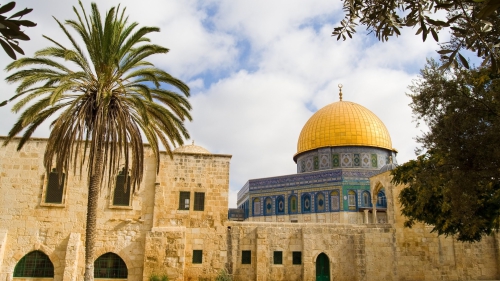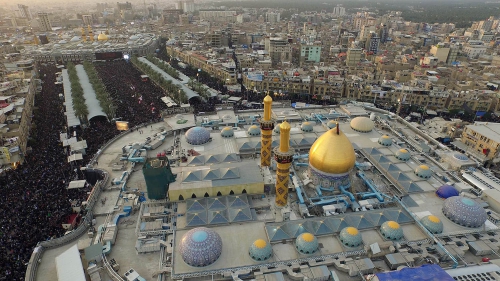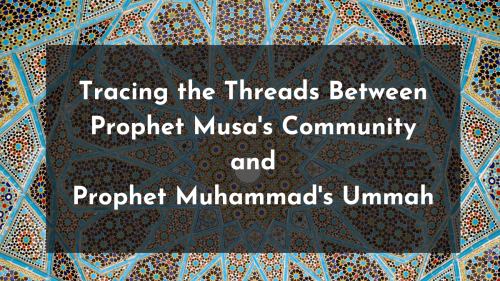Pharaoh and Space Exploration

(Summary: This article discusses the implications of Pharaoh's command to Haman to build a lofty tower for him to climb up and look at the God of Musa. It concludes that Pharaoh was perhaps the first "space explorer" and the tower phenomenon the first institutionalized space exploration effort. It also explores the truth about the tower. Today's exploration of space, in a way, is the fulfillment of Pharaoh's ambition.)
Pharaoh was an exemplar of evil and cruelty. His mischief knew no bounds. He even claimed divinity. He used to say to his people that he was their Lord, most high (al-Nazi'at, 24). Once, he addressed his elites: "O chiefs, no god do I know for you but myself" (al-Qasas, 38).
When Prophet Musa was sent to Pharaoh to admonish and invite him to the ways of the truth, then he instantaneously became, not only Pharaoh's personal nemesis but also the greatest enemy of the state.
There was so much at stake in Pharaoh's pursuit of a vendetta against Musa. Musa was proving by the day an inescapable agent of Pharaoh's imminent downfall. Hence, Pharaoh relentlessly schemed to imprison and kill Musa, and thus do away with the source of all troubles. Pharaoh deemed that Egypt wasn't big enough for two gods. He was ready neither to relinquish nor to share with anybody the limelight of divinity.
At one point, he said to Musa: "If you take a god other than me, I will surely place you among those imprisoned" (al-Shu'ara', 29). In addition, the confrontations between the two often assumed ideological undertones. Musa's debate with Pharaoh, upon returning to Egypt as a messenger of Allah, was epic.
Building a lofty tower
As part of those ideological battles, Pharaoh once said to Haman, his minister, and adviser: "Construct for me a lofty tower of baked bricks so that I may climb on it and see the God of Musa; I think he is a liar" (al-Qasas, 38).
The Qur'an says at another place: "And Pharaoh said: 'O Haman, construct for me a lofty tower that I might reach the ways; the ways into the heavens - so that I may (climb up and) look at the God of Musa; but indeed, I think he is a liar'" (Ghafir, 36-37).
The following are nine points that can be gleaned from the two verses and the events they target.
First: Pharaoh as the sovereign godhead on Earth
Pharaoh never professed that he was the creator and Lord of the Universe. The absurdity of such a claim was beyond even Pharaoh's apparently endless wiliness and despotism and his people's gullibility.
The same goes for all other rulers and kings who historically claimed to be living gods.
What Pharaoh wanted was to be the sovereign godhead on Earth (in Egypt). He wanted to have absolute authority in all affairs and to command unquestionable obedience from people. His commandments pertaining to all aspects of people's lives had to be venerated and followed.
In short, Pharaoh wanted to be an earthly god and to be worshiped. He might, or might not, have an idea about a supernatural godhead, however down on Earth (in Egypt), he was the Lord. He was so authoritative and boastful that he fancied that yet some physical laws were at his mercy.
This was way bigger and more powerful than the notions of the personality cult and kings' divine right (God's mandate). Once Pharaoh assembled his people and addressed them in a vainglorious manner: "O my people, does not the kingdom of Egypt belong to me, and these rivers flowing beneath me; then do you not see?" (al-Zukhruf, 51).
Second: Pharaoh as an example of craftiness and ruthlessness
For people to believe in such a slander, Pharaoh had to be at once cunning, creative, and ruthless. He had to stay a step ahead of everybody else: friends and foes.
And indeed, he was an epitome of all that.
The Qur'an confirms: "Indeed, Pharaoh exalted himself in the land and made its people into factions, oppressing a sector among them, slaughtering their (new-born) sons and keeping their females alive. Indeed, he was of the corrupters" (al-Qasas, 4).
"Thus did he make fools of his people, and they obeyed him; truly were they a people rebellious (against Allah)" (al-Zukhruf, 54).
Third: Pharaoh as an agnostic and empiricist
Musa's peril presented Pharaoh with a whole new set of challenges. Nevertheless, he decided to convert them into opportunities, turn the tables on Musa and thus cover himself with glory in his people's eyes.
Pharaoh was an agnostic and empiricist. To him, all knowledge and judgments had to be based solely on sensory experience. The unknown beyond the senses, by default, was unknowable, and so, non-existent. Only the known – in the context of the material world - was to be authentic and believed.
Since nobody could see, hear, or talk to Musa's God - who was the Lord of the heavens and the Earth, and the east and the west - He actually could not exist. He was a fiction, yet Musa's private construct. He furthermore was a lie, and Musa, by extension, was nothing but a liar.
Fourth: the lofty tower as means of access to the heavens
Having armed himself with this philosophy and having indoctrinated his people with it, Pharaoh decided to go the extra mile and shore up his reputation and position at Musa's expense. He asked Haman to build a lofty tower for him as means of access to the heavens, so he could mount up to the God of Musa.
In passing, it was Pharaoh's delusion that Musa's God resided in the sky. That formed an ideological segment of his scam. As a firm denier of the truth brought by Musa, Pharaoh intended to substantiate his beliefs. He was prepared to stop at nothing and spare no pains in an attempt to be successful.
To him, Musa was a pretender. There could not possibly be any god up there. In that case, Pharaoh, should he ascend, would be able to provide undeniable evidence for his assertions.
With his own sensory experience, he would then attest to the "truth" he concocted – and to Musa's falsehood. After that, nothing could stop him, neither in battling and eventually defeating Musa nor in manipulating and subjugating his people.
Having access to the sky (the gateway to the heavens) via the tower, Pharaoh could even hatch a conspiracy that his sovereignty and dominion had begun to extend into the heavens. That way, he would have created a special physical and conceptual vantage point for boosting his egocentricity and self-absorption and for controlling the people.
The aphorism that the sky is the limit would then be understood as much literally as metaphorically.
Everything about Pharaoh was excessive. He was big-headed, and he desired to go as far and as high as possible in self-exaltation, pride, and vanity. It was a national policy that only what Pharaoh perceived, understood, and regarded as the right was accepted. The rest was wrong and blasphemous.
He declared to the people: "I show you only what I think is proper, and guide you only to the right direction" (Ghafir, 29). Pharaoh articulated the word "heavens." However, in no way could he know that there are heavens up there (seven tiers of them). He only imitated (plagiarised) Musa's terminology, who told him that the Lord of the heavens had sent him.
Fifth: Pharaoh as a "space explorer."
Pharaoh, in a way, was a seeker of ultimate truth. Further authenticating what he already had, and adding additional evidence to it, was a part of the quest. He looked up to the sky – the heavens - for some of the answers. He regarded the extra-terrestrial domain as a potential repository of the vital aspects of what he recognized as the truth.
He was a space explorer. The tower was a stepping stone to the ways and means of reaching the heavens and dispelling Musa's God's myth in them. It was likewise a rare launchpad for his divinity case. His future might have depended on it.
As strange as it may seem, Pharaoh aspired to be a "space voyager" as well. At least, he most seriously mooted the idea. He did not become just curious about the heavens and the likely answers they contained but also rapt and obligated. He was desperate for a new outlet to declare that there was no god but himself effectively, and a promising prospect was "out there."
Sixth: the tower as a "house of God" and a "laboratory."
Within the tower, Pharaoh was able to further "isolate" himself from this ephemeral world and the surrounding mortals and be "closer" to the divine realm. He was able to join and communicate with the "out there" sphere.
He was able to administer the world in a more conducive milieu and issue and receive "revelations" in peace and a more spiritually charged environment. The tower was a "house of God" par excellence. It was a private sanctuary and a temple, too. It was an observatory and also laboratory, in the worldly and otherworldly senses.
The tower furthermore was an incubator of new ideas and outlooks. In addition to religion, a great many socio-politico-economic and national security concerns in Egypt were likewise at risk. The objectives of the tower were wide-ranging. The tower was expected to become an asset in line with the demands of national undertakings.
Pharaoh leveled numerous charges against Musa – and his brother Harun, also a prophet. He summed up his charges as follows: "These two are certainly (expert) magicians: their object is to drive you out from your land with their magic and to do away with your most cherished institutions (most exemplary ways and traditions)" (Ta Ha, 63).
Just like all institutional buildings in ancient Egypt, this tower, too was a multifunctional structure. It was more consequential than it might have seemed. There was more to it than meets the eye.
Seventh: the tower as the first institutionalized effort of space exploration
Pharaoh's tower represented the first institutionalized effort as part of humanity's universal and enduring interest in the heavens. Although the endeavor was embryonic and not scientific per se, the aim was to expand knowledge (find answers) and enhance beliefs.
The tower was a precursor of the modern and globalized obsession with space exploration and travel. The biggest question of Pharaoh wasn't answered until these modern times and in a pharaonic fashion.
The first man launched into space was the Russian (USSR) cosmonaut Yury Gagarin. His capsule, Vostok 1, orbited Earth once in 1961. However, upon returning to Earth, he is reported to have said: "I looked, but I did not see any God." This was not an isolated incident, however. A Kremlin propaganda poster produced around that time featured a drawn picture of a cosmonaut floating happily and proudly in space with a caption "there is no God!" ("бога нет!").
It follows that what Pharaoh had started, current space exploration and space travel endeavors try to fulfill. They merely raised the bar. They raised the existing interests and aims to the higher levels of thought and procedure.
Pharaoh was the originator and godfather of space research and the potential conquest of space.
That "there is no God," uttered by Yury Gagarin and endorsed as a Soviet scientific creed, was just the beginning. The rest of the answers to man's most fundamental questions were to be uninterruptedly sought as much in the heavens as down on Earth. We may find the truth about life, ourselves, other realities of life – and God – perhaps "out there."
The Earth could simply be the first step of a journey of a thousand miles (interstellar phases and chapters). As the Russian scientist and rocket pioneer Konstantin Tsiolkosky once said: "The earth is the cradle of humanity, but mankind cannot stay in the cradle forever."
This approach is both directly and indirectly alluded to by NASA's "Benefits Stemming from Space Exploration": "Space exploration offers a unique and evolving perspective on humanity's place in the Universe, which is common to all. Every day, space exploration missions fulfill people's curiosity. It produces new data about the solar system that brings us closer to answering profound questions that have been asked for millennia: What is the nature of the Universe? Is the destiny of humankind bound to Earth? Are we and our planet unique? Is there life elsewhere in the Universe?"
Needless to say that Pharaoh's interest in exploring the heavens was primarily to refute Musa and the truth he had been sent with and to validate and assert himself instead. Similarly, the phenomenon of modern space exploration signifies the climax of such scholarly, cultural and socio-economic movements as Renaissance humanism, Scientific Revolution, the Age of Enlightenment, and Industrial Revolutions. These championed the negation of spirituality and God, and the glorification, together with the deification, of man and his talents.
The advancements made in the relevant fields are intended to be used as proofs against mainstream religions and science as the de facto religion of modernity.
Eighth: the truth about the tower
Historically, the idea of Pharaoh's tower was shrouded in many ambiguities yet mysteries. Several dramatic accounts have been fabricated about it.
The word used in Arabic for the tower is sarh, which means any lofty and elevated tower, palace, or fortress. It could also be a grand house or any other architecturally classy building. For instance, the Qur'an refers to Prophet Sulayman's palace, which was paved smooth with slabs of glass, as sarh (al-Naml, 44). In the case of Pharaoh's sarh (tower), it should have been a splendid and lofty palace. It was not just a tower in the conventional sense of the word. This is because the tall the tower might have been, it could not be higher than an average hill or mountain. Hence, what would be the point of constructing a building solely for height purposes (to reach the ways into the heavens), while there were numerous hills and mountains that were much higher?
There would undoubtedly be nothing smart, nor extraordinary, in the undertaking.
Doing so on top of a hill will still be inappropriate, as there are always much higher mountains. Moreover, for Pharaoh to try to "ascend the heavens," he could simply go and climb any high mountain in Egypt (and there are many, some of which rise above 2,500 meters).
Today's tallest building is Burj Khalifah in Dubai. It is (only) 828 meters tall. How tall could a tower have been in approximately the 14th century BC?
All the same, the whole world knows that even when standing on the top of the highest mountain, such a thing means nothing insofar as reaching the height and vastness of the sky (the heavens) is concerned. It stands to reason that Pharaoh's was a lofty and magnificent palace, rather than just a tower. However, its primary purpose was not sheer height – even though a segment of it might have been rendered a tower.
Its main purpose revolved around the "lofty" ideas and objectives that underpinned its conception and execution. The building's atypical plan and design might have further enhanced the sentiment. Therefore, Pharaoh wished to raise the stakes, solidify his position and increase the prospects of hoodwinking the people. He wished to create a new perspective from which he could "see" and "comprehend" better. His standard of letting the people see and understand only what he saw and understood needed to be strengthened and carry extra weight.
That is to say, Pharaoh needed to reinvent his approach and to so equip himself as he could boldly face – and possibly defeat – Musa and his God. Pharaoh's relationship with the people depended on the outcomes of his ongoing duels with Musa. Yet his own future and overall legacy relied on them. He was at a crossroads.
Ninth: was the tower ever built?
Furthermore, scholars vastly disagree as to whether the tower was actually ever built.
Many say it was, while others believe it was not. The latter think that what Pharaoh said about the tower was light-heartedly and to ridicule and humiliate Musa. Building the tower was unrealistic. Some yet say that Pharaoh did not build the tower. Nevertheless, he spoke about it seriously. He theorized and hypothesized about the matter as much as possible in order to bring forth all the advantages for himself and all the disadvantages against Musa, which were entailed therein.
At any rate, the tower was constructed of mudbricks. Such was the case because, with mudbricks, construction was more comfortable and faster, while time was not on Pharaoh's side. Mudbricks are not as durable as stone, but that did not matter. The tower's purpose and function were medium-term at best. Sturdiness and longevity were never meant to be its forte.
Buildings in ancient Egypt were generally made of mudbricks and stone. According to the Old Testament, Pharaoh punished the Children of Israel by discontinuing the supply of straw for making bricks in a famous incident. They had to go and gather their straw. Nonetheless, they were required to produce the same quota of bricks as before (Exodus, 5:7-9).
In conclusion, Pharaoh's end was low and humiliating. That was commensurate with how high he craved to go and reside on an elevated plane of existence. This assessment is to be taken both factually and figuratively.
Pharaoh coveted the honor of ascent but received the ignominy of fall. He coveted a supreme status but received a perennial disgrace.
The Qur'an says that he was drowned in the darkest depths of the red sea. As he was drowning, he ostensibly acknowledged the truth and shamelessly pleaded for mercy, but was told: "Now? And you had disobeyed (Allah) before and were of the corrupters? So today We will save you in the body that you may be to those who succeed you a sign" (Yunus, 91-92).
Topics: Night Journey (Isra And Miraj), Pharaoh, Prophet Moses (Musa)
Views: 4859
Related Suggestions

















